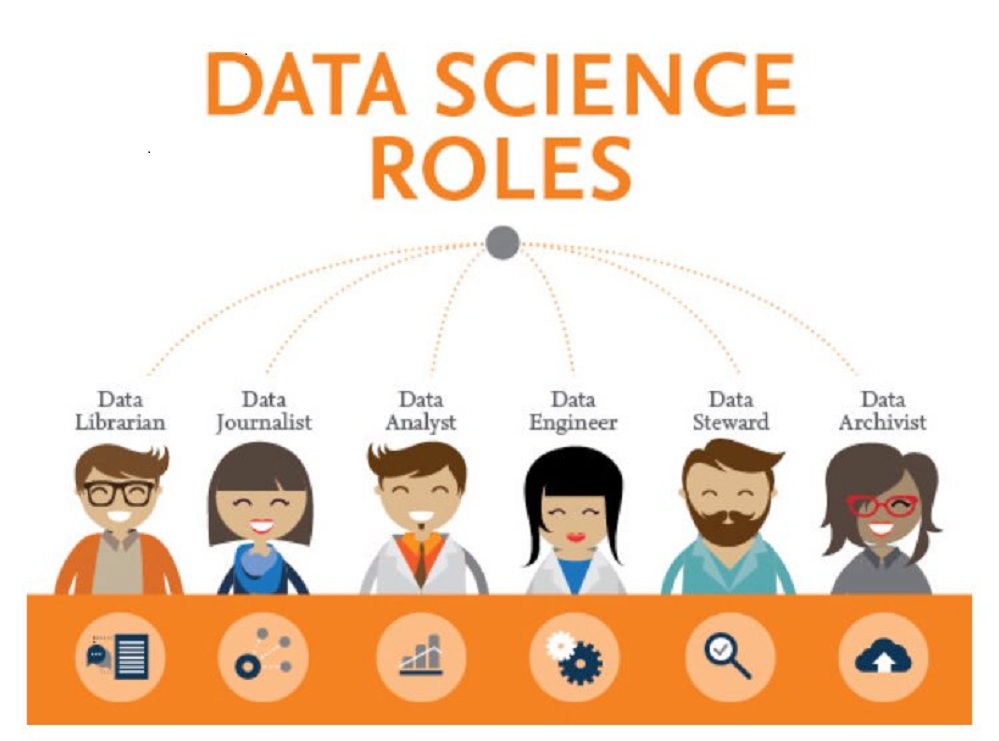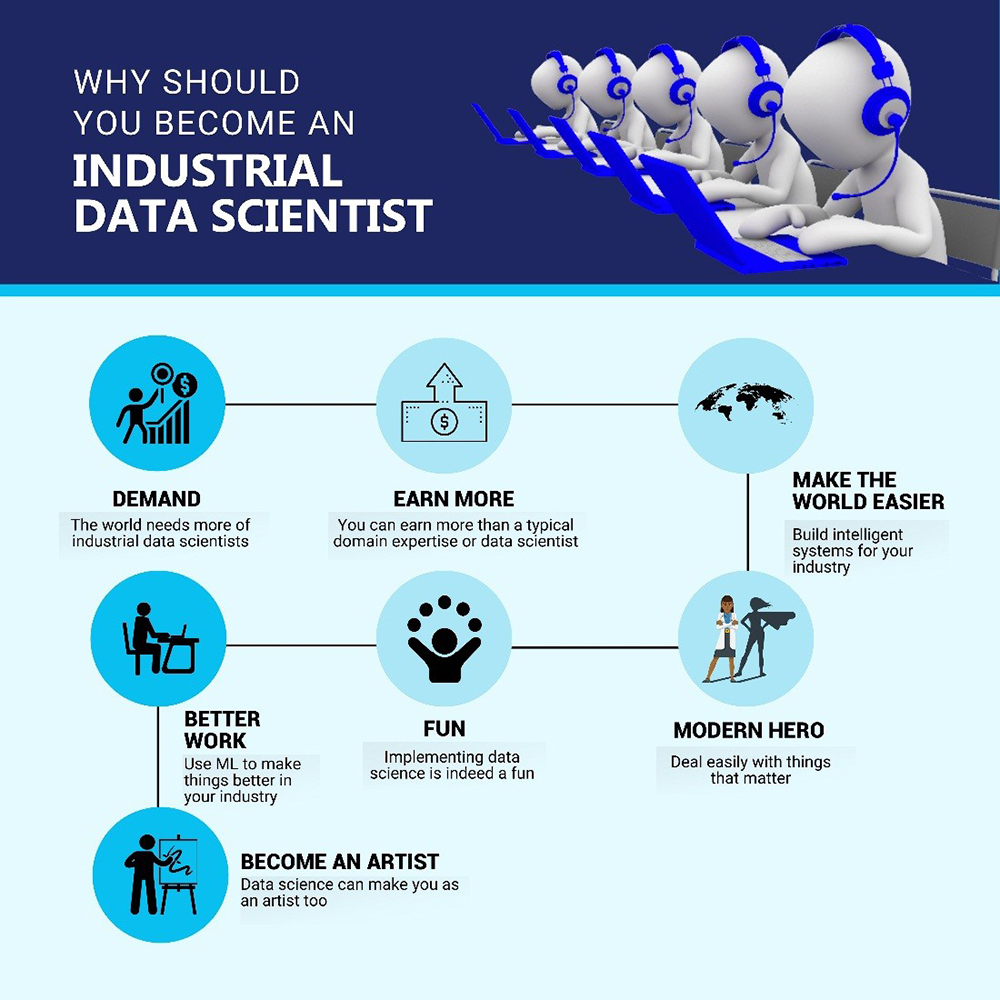what are data scientists

In today’s increasingly data-driven world, the role of data scientists has emerged as a critical component in various industries. These professionals possess a unique set of skills and expertise that allow them to extract valuable insights from vast amounts of complex and unstructured data. But what exactly is a data scientist? In this article, we will explore the definition, responsibilities, and importance of data scientists in today’s digital landscape. Whether you are an aspiring data scientist or simply curious about this field, join us as we delve into the fascinating realm of these analytical wizards who are shaping the future with their abilities to transform raw data into actionable knowledge.
Defining Data Scientists and Their Role

Data scientists are highly skilled professionals who possess expertise in analyzing and interpreting complex data sets. They employ various statistical techniques, programming languages, and machine learning algorithms to extract valuable insights from vast amounts of information. These experts play a crucial role in helping organizations make data-driven decisions by identifying patterns, trends, and correlations that can drive business growth.
The role of data scientists extends beyond just analyzing data; they also have the responsibility of ensuring data quality and integrity. They work closely with stakeholders to understand their needs and provide actionable recommendations based on their findings. Additionally, they are proficient in visualizing data through graphs, charts, and dashboards to effectively communicate their insights to non-technical decision-makers. In today’s digital era where organizations collect massive amounts of data every day, the demand for skilled data scientists continues to rise. Their expertise is essential for leveraging the power of big data and transforming it into actionable intelligence that drives innovation and competitive advantage.
Skills and Qualifications Required
Data scientists are professionals who possess a unique set of skills and qualifications that enable them to derive insights from large and complex datasets. One of the key skills required for data scientists is proficiency in programming languages such as Python, R, or SQL. These programming languages allow data scientists to manipulate, analyze, and visualize data effectively. Additionally, data scientists need to have a strong understanding of statistics and mathematics as they use various statistical techniques to uncover patterns and trends in the data.
Moreover, knowledge of machine learning algorithms is crucial for data scientists as it enables them to develop predictive models that can make accurate predictions and recommendations based on historical data. They should also be well-versed in tools like TensorFlow or PyTorch for implementing these models. Furthermore, strong problem-solving abilities are essential since data scientists often encounter complex problems that require innovative solutions. Effective communication skills are also important as they need to translate technical findings into actionable insights for non-technical stakeholders.
Key Responsibilities of Data Scientists
Data scientists are professionals who possess a unique blend of technical skills, statistical knowledge, and business acumen. They play a crucial role in analyzing large volumes of complex data to extract meaningful insights and drive strategic decision-making within organizations. One key responsibility of data scientists is to collect and clean data from various sources, ensuring its quality and integrity for analysis. This involves understanding the problem at hand, identifying relevant data sources, and employing appropriate methods to transform raw data into a usable format.
Another critical responsibility of data scientists is to develop predictive models that can anticipate future trends or outcomes based on historical patterns. They utilize advanced statistical techniques and machine learning algorithms to build these models, which enable businesses to make informed decisions and gain a competitive edge. Data scientists also focus on creating visualizations and reports that effectively communicate their findings to stakeholders across different levels of the organization. By presenting information in an easily understandable manner, they facilitate better decision-making processes and assist in solving complex business problems with the help of data-driven insights.
Industries that Employ Data Scientists

Data scientists are professionals who possess a strong understanding of data analytics, statistics, and programming. They have the ability to analyze large volumes of complex data using various tools and techniques to extract valuable insights that can drive business decisions and strategies. These highly sought-after professionals are employed across a wide range of industries where data plays a crucial role in decision-making processes. One industry that heavily relies on data scientists is the technology sector. Companies such as Google, Facebook, and Amazon utilize the expertise of data scientists to leverage their vast amounts of user-generated data for improving products, enhancing user experiences, and driving targeted advertising campaigns. The financial services industry also extensively employs data scientists to analyze market trends, predict investment opportunities, manage risks, and detect fraudulent activities.
Moreover, healthcare is another sector that greatly benefits from the skills of data scientists. By analyzing patient records and medical research databases, these professionals can develop predictive models for disease diagnosis or treatment recommendations. Additionally, they assist in optimizing healthcare operations by identifying inefficiencies in processes or predicting patient flow patterns within hospitals.
The Future Scope of Data Science
Data scientists are professionals who possess a blend of skills in mathematics, statistics, programming, and domain expertise. They leverage these skills to extract meaningful insights from large volumes of data and help organizations make data-driven decisions. As businesses increasingly recognize the value of data, the demand for skilled data scientists continues to rise.
The future scope of data science is promising and vast. With advancements in technology such as machine learning, artificial intelligence (AI), and big data analytics, the role of data scientists is expected to become even more significant. Data science will continue to evolve as new tools and techniques emerge. This evolution will bring about improvements in areas like predictive analytics, natural language processing, image recognition, and recommendation systems. Moreover, as industries across sectors embrace digital transformation and rely on data-driven strategies to stay competitive, the demand for professionals with expertise in data science will only grow stronger. Data scientists will play a crucial role in helping organizations harness the potential of their vast datasets to gain a competitive edge by optimizing operations, enhancing customer experiences, driving innovation, predicting trends accurately, and mitigating risks effectively. the future scope of data science is bright due to its potential impact on various industries. The continuous advancement in technologies like AI and machine learning indicates that there will be an ongoing need for skilled professionals who can derive insights from complex datasets. These skilled professionals will not only be responsible for analyzing and interpreting data but also for developing and implementing cutting-edge algorithms and models. As industries become more data-driven, the demand for data scientists will continue to rise.
One of the key reasons why the future scope of data science is bright is its potential impact on various industries. Data science has already revolutionized sectors such as finance, healthcare, marketing, and manufacturing by enabling organizations to make informed decisions based on data-driven insights.
Challenges Faced by Data Scientists

Data scientists are professionals who possess a combination of skills in statistics, programming, and domain expertise. They have the ability to collect, clean, analyze, and interpret large volumes of data to extract valuable insights that can drive decision-making processes. However, being a data scientist comes with its fair share of challenges.
One challenge faced by data scientists is the ever-evolving nature of technology and techniques. As new tools and algorithms emerge at a rapid pace, it becomes crucial for data scientists to stay updated with the latest advancements in their field. This requires continuous learning and keeping up with industry trends. Another challenge is dealing with messy and unstructured data. Data scientists often encounter datasets that are incomplete or contain errors. Cleaning and preparing such data can be time-consuming and complex, requiring them to employ various techniques like imputation or outlier detection.
Additionally, communicating complex findings effectively poses another hurdle for data scientists. Translating technical jargon into actionable insights that non-technical stakeholders can understand is essential for driving organizational change based on their analyses. This demands strong communication skills to bridge the gap between technical expertise and business understanding. While the role of a data scientist is highly rewarding in terms of extracting valuable insights from vast amounts of data, they face challenges in keeping up with technological advancements, handling messy datasets efficiently, and effectively communicating their findings to diverse audiences within an organization. Data scientists play a crucial role in transforming complex technical concepts into practical and meaningful information that non-technical stakeholders can comprehend. This skill is vital for instigating positive transformations within an organization based on the analyses conducted by data scientists. To achieve this, strong communication skills are required to effectively bridge the gap between their technical expertise and the business understanding of other stakeholders. The work of a data scientist is not only intellectually stimulating but also immensely rewarding.
Conclusion: The Increasing Demand for Data Scientists
In conclusion, data scientists are highly skilled professionals who possess a unique combination of technical expertise and analytical thinking. They play a crucial role in extracting valuable insights from vast amounts of complex data, helping businesses make informed decisions and gain a competitive edge. With the rapid advancement of technology and the increasing importance of data-driven decision-making, the demand for data scientists is only expected to grow in the future. As we continue to generate massive amounts of data, it becomes imperative for organizations to harness its potential and unlock its hidden value. Therefore, it is essential for businesses to invest in building a strong data science team or seek collaboration with experienced data scientists to effectively leverage their data assets and stay ahead in today’s data-driven world.
ALSO READ : What Does Launching A Website Mean?




